Bill Bradshaw, operations manager at FM Global talks to StrategicRISK about how the insurer is trying to move the needle on climate risk.
When businesses are interrupted by fire, flood, hurricanes or earthquakes, society at large feels the effects.
And as climate change, urbanisation and overpopulation increases the frequency and severity of these events, mitigating the effects becomes even more important.
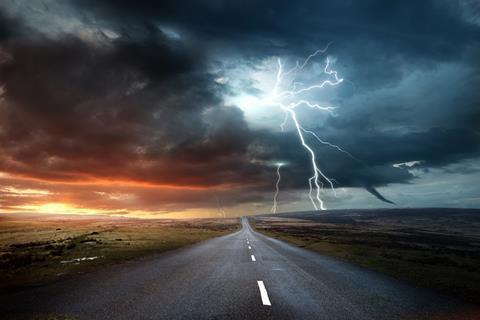
Bill Bradshaw, operations manager at FM Global explains: “Ultimately, when you’re dealing with pharma, with food, and with utilities, the moment any of those stops, the world suffers.”
Equally, the last few years have seen some of the biggest catastrophe losses ever, and this year is unlikely to be different.
However, while historic losses were typically driven by flood or wind, now perils like the Texas freeze and global wildfires are causing huge damage.
This, Bradshaw explains, is causing ramifications right through the industry.
He said that as a society, people are challenging the status quo in terms of how firms should be responding to climate change.
“Ultimately, when you’re dealing with pharma, with food, and with utilities, the moment any of those stops, the world suffers”
There is greater pressure than ever for businesses to demonstrate their commitment to decarbonisation and look after the world around them.
And for Bradshaw, science and data hold many of the answers.
He says: “Our background has always been engineering, research, knowledge, and use of data. We have enough data to probably fill servers all over the world. But how do you use that wisely?
“What we’ve been looking at over the last few years is really taking that data and saying [and applying it to] everything that’s going on with climate change.”
He adds that lot of risk managers are now being challenged on reporting and financial disclosures to investors, shareholders, and society in general. Being able to use data and science to show how you’re tackling climate risk is a big part of meeting those challenges.
”When you’re telling your shareholders and investors about how you’re managing something, it can’t be a box-ticking exercise.”
Bradshaw explains: “It’s a great start position for risk managers to be able to go into the organisation, talk to chief sustainability officers and say: ‘How do we take this conversation further and make an impact on what we’re exposed to? [Then] we can… plan and be comfortable that we’ve got something in place that’s going to make sure we can continue delivering in the future.’
“When you look at purpose and impact, and when you’re telling your shareholders and investors about how you’re managing something, it can’t be a box-ticking exercise. It has to be based on facts. It has to be based on some type of science and the application of knowledge.”
In terms of practical steps that risk managers can take to minimise the threats of climate change, Bradshaw says it pays to start simple. For instance, risk managers can move assets up off the floor to avoid flood damage and use sprinklers effectively to minimise fire damage.
He says: “This is simple to do, it’s not rocket science. But there are other things that are a lot more challenging and that you need to keep on top of. Wildfire is a good example. Generally, wildfire is about clearing areas around your facilities within a certain distance using data and science.
“If you can get the data right and you can articulate it, you can carry that message to the c-suite.”
“This means that wildfire isn’t going to get right to the edge of a facility and start cracking windows and allowing smoke to come in. You might be exposed to a few embers, but there are things that you can do. Again, it’s about just having the knowledge.”
Looking to the future, Bradshaw thinks artificial intelligence could transform the way that risks are modelled and mitigated, something FM Global is trying to harness.
He explains: “We’re looking at using artificial intelligence to look at a client’s data and properties around the world and then use a combination of machine learning and aerial imagery if a facility is exposed to a peril like wildfire - without even being there.
“Then you’re suddenly into a realm where if you’re talking to the board about wildfire you say, we’ve got a thousand locations, we’ve seen 200 of them, but the other 800, we’ve run through this model and we know that some of them are exposed to wildfire. At which point you can put in provisions to address it.
“It’s simple. Data is king in this industry. If you can get the data right and you can articulate it, you can carry that message to the c-suite.”
Calling all risk managers!
Is climate change on your risk radar as a physical risk, transition risk or in some other form? How prepared is your organisation for the transition to net-zero? How engaged are your board and executive management with these issues?
StrategicRISK’s annual climate survey tracks how risk managers are thinking about and dealing with climate risks. We want you to tell us how you are mitigating the threats and capitalising on the opportunities created by the race to net-zero.
Please take part in our quick survey. All will be anonymised and the results will appear in this year’s annual special climate change report in the Q3 edition of StrategicRISK, as well as being published on our website.
https://www.surveymonkey.co.uk/r/3FZBYRD





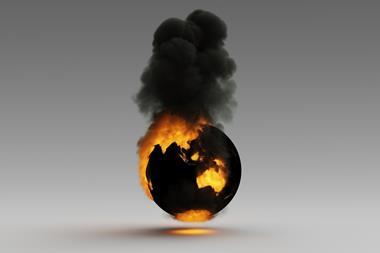

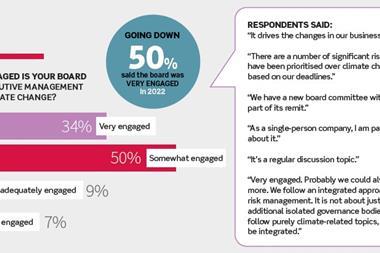



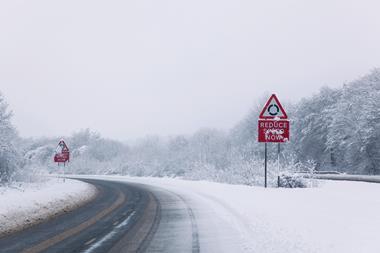
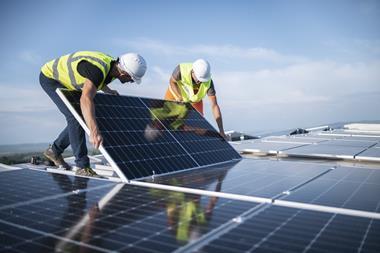
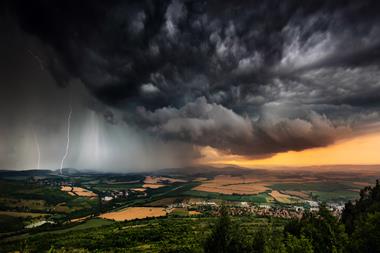
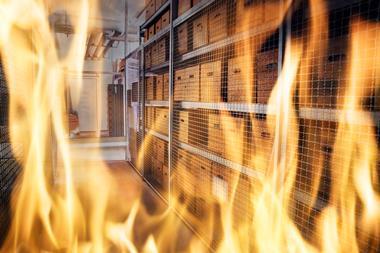
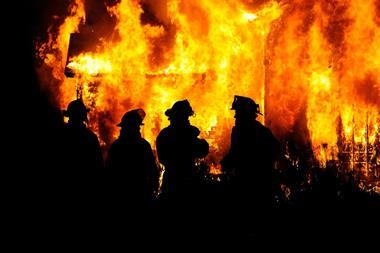
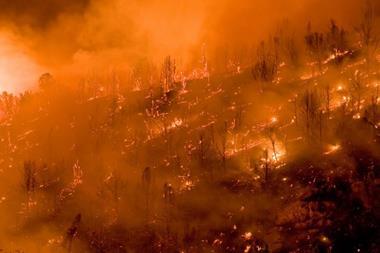



No comments yet